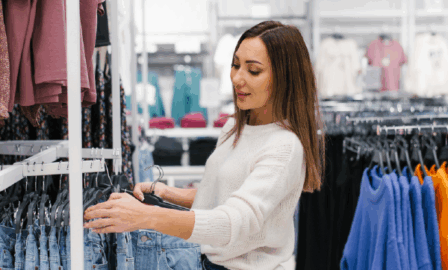Impact of COVID-19 on Retailers
While the COVID-19 pandemic is foremost a humanitarian crisis, there is a significant impact on the global economy, particularly the retail industry. Although some retailers, such as grocery stores and e-commerce merchants, are experiencing strong spikes in demand, many of the world’s leading retailers shuttering their stores in response to social distancing precautions, there is no denying that impact of COVID-19 on retailers is widespread and are likely to linger. It’s important all organizations nationwide consider how demand for their products and services are likely to recover for their specific industry.
For industries like grocery and household goods, a surge in demand now followed by stabilization over the long term is quite likely. For others, like retail health, suppressed demand now is likely to be followed by a surge in demand later as folks return to physical therapy, seek dental treatment, and revisit the optometrist. For most retailers, however, it’s likely demand will be significantly suppressed in the near-term and only slowly recover to pre-Coronavirus levels in the future. In light of this new reality, it’s important for retailers to find creative ways to prepare for the return of foot traffic.
Protect Your People
With sales floors going quiet, many retailers have no choice but to shut down their retail operations. Such drastic measures rarely come with a standard operating procedure. Once the stores go dark—then what? While revenue is obviously important, it’s critical to consider the impacts of store closures on your staff. Your store associates are the face of your organization. Your brand ambassadors. Your influencers. How can their time be repurposed in this time of crisis? Consider ways for your associates to sell remotely. Can they influence the online path to purchase for those consumers loyal to their store? Are there opportunities to upskill these associates on new product offerings, services, or store procedures from the safety of their own homes? For organizations with mature distributed order management solutions, can you bring additional stores online to your fulfillment network and can the associates there play a part in shipping orders directly to consumers?
Regardless of your organization’s workforce strategy, it’s important to find ways to protect employee’s sense of shared purpose. This crisis has not only generated significant stress in the workplace, but also within homes as families adjust to a “new normal”. Ensure you maintain two-way communication with your workforce inclusive of confidential escalation channels. Provide a single source of truth to keep your organization informed of the collective crisis response. Retailers like REI, Ralph Lauren, and Patagonia (among others) are demonstrating a strong commitment to their store associates by ensuring payroll remains uninterrupted throughout their store closures. However, this could prove unsustainable should the situation worsen. In fact, job cuts are expected across all industries if the coronavirus outbreak causes a deep recession. Even though the near-term labor cuts may prove to be temporary, uncertainty around COVID-19 has also affected hiring for seasonal staff, leaving many in the retail sector without a paycheck.
Prepare for the Shopper’s Return
If your organization is in the middle of omnichannel, clienteling, or ecommerce investments, we recommend maintaining momentum across these programs despite slowing store traffic. Your loyal store patrons will have no choice but to shift online for purchases for at least several weeks, likely longer. As the COVID-19 crisis begins to ease, it’s likely consumers will use discretion when choosing which stores to physically visit. Retailers offering buy-online-pickup-in-store or curbside capabilities are likely to have sales rebound earlier than those without. When consumers do return to the stores en masse, they will bring with them the online wish-lists, online transaction history, and product preferences curated from their participation in the stay-at-home economy. Equipping your store associates with the tools necessary to augment the in-store experience with this data will further differentiate your brand in the recovery.
It’s important for all of us to learn from the challenges we are navigating today. Retail priorities, lobbying efforts, and business issues are changing quickly. While the retail environment will stabilize at some point in the future, it’s difficult to predict how our “new normal” might look. We have an opportunity now to build resiliency to more effectively weather the global shocks of tomorrow. Continue to invest in your teams, your tools, and the systems that fundamentally power your business. The consumers will return, and when they do, we each have an opportunity to meet them where they are.
To learn more about the impact of COVID-19 on retailers, contact one of Clarkston’s retail experts.



